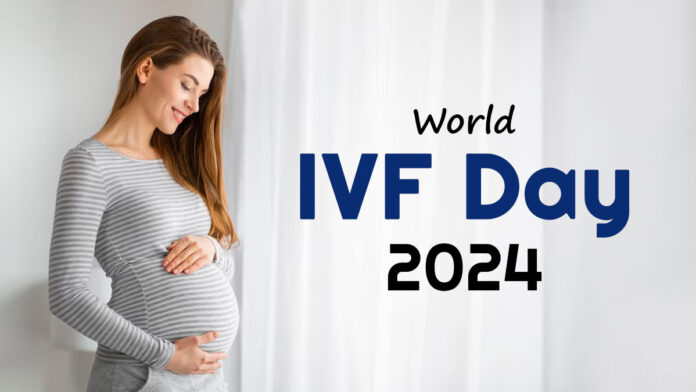World IVF Day, celebrated annually on July 25th, marks the anniversary of the birth of the world’s first “test-tube baby,” Louise Brown, in 1978. This day recognizes the advancements in assisted reproductive technology (ART) and in vitro fertilization (IVF), highlighting the significant impact these technologies have had on infertility treatment and reproductive health.
Key Aspects of World IVF Day:
- Historical Significance:
- Louise Brown’s birth on July 25, 1978, was a groundbreaking moment in medical history. She was the first baby born as a result of IVF, a procedure developed by Dr. Robert Edwards and Dr. Patrick Steptoe. This success paved the way for millions of couples struggling with infertility to have children.
- Raising Awareness:
- The day is dedicated to raising awareness about infertility and the available treatment options. It aims to educate people about the causes of infertility, the emotional and psychological impact it can have, and the advancements in fertility treatments.
- Celebrating Medical Advances:
- World IVF Day celebrates the continuous advancements in reproductive medicine. From improved IVF techniques to innovations in genetic screening and fertility preservation, the day highlights the progress made in helping individuals and couples achieve their dream of having children.
- Support and Advocacy:
- The day also focuses on providing support to those undergoing fertility treatments and advocating for better access to reproductive healthcare. It encourages discussions about the ethical, legal, and social implications of IVF and other ART methods.
- Global Recognition:
- IVF is now a widely accepted and practiced medical procedure around the world. World IVF Day brings together medical professionals, researchers, patients, and advocacy groups to share knowledge, experiences, and support.
Activities and Events:
- Educational Campaigns: Organizations and clinics often hold seminars, webinars, and workshops to provide information about infertility and treatment options.
- Patient Stories: Sharing success stories and personal experiences of individuals and couples who have undergone IVF helps to inspire and support others.
- Medical Conferences: Professionals in the field of reproductive medicine gather to discuss the latest research, advancements, and best practices in IVF and ART.
- Social Media Campaigns: Using hashtags like #WorldIVFDay, people share information, stories, and raise awareness about infertility and IVF.
World IVF Day is a day of hope and celebration for many, as it underscores the achievements in medical science that have made it possible for countless families to grow and thrive.



